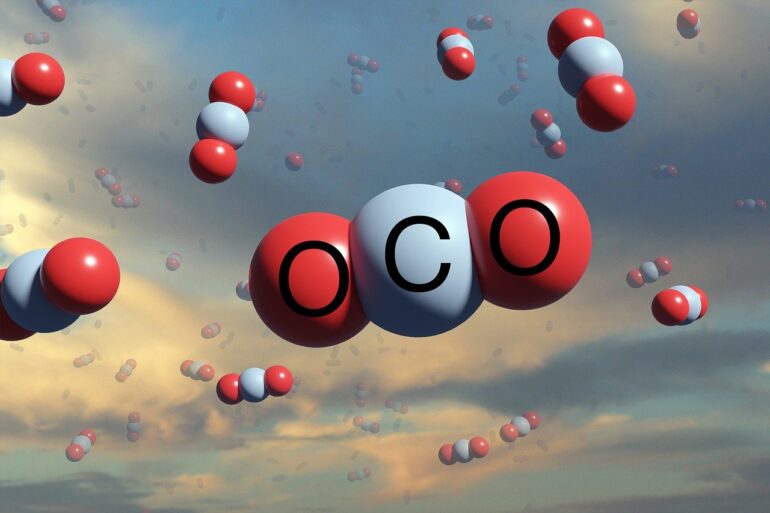TL;DR:
- Artificial intelligence (AI) has a significant role in enhancing CO2 conversion technologies.
- AI accelerates the discovery of efficient catalysts by predicting their performance through machine learning algorithms.
- It optimizes the conditions for CO2 conversion, leading to increased efficiency.
- AI aids in designing more efficient reactors by modeling and simulating various designs.
- It identifies areas for improvement and innovation in CO2 conversion technologies.
- AI optimizes the use of renewable energy sources, reducing the carbon footprint.
- It monitors and controls CO2 conversion processes for maximum efficiency and reduced byproduct release.
Main AI News:
In today’s era of climate change challenges and the pressing need for sustainable energy solutions, the role of artificial intelligence (AI) is revolutionizing CO2 conversion technologies is gaining immense significance. With its unparalleled ability to process vast amounts of data and derive insights from it, AI has the potential to transform our approach to CO2 conversion, making it more efficient, cost-effective, and environmentally friendly.
A pivotal challenge in CO2 conversion lies in identifying the most efficient catalysts to facilitate the conversion process. Traditionally, researchers have relied on a time-consuming and labor-intensive approach, meticulously testing numerous materials and combinations to discover the most effective catalysts. However, AI can significantly accelerate this process by leveraging machine learning algorithms to predict the performance of potential catalysts. By doing so, researchers can focus their efforts on the most promising candidates, saving valuable time and resources.
AI’s capabilities extend further to analyzing data from past experiments and uncovering patterns that hint at a particular material’s efficacy as a catalyst. This analytical power assists researchers in narrowing down their search, eliminating the need to invest time and resources in materials that are unlikely to yield favorable outcomes. Additionally, AI can optimize the conditions under which the CO2 conversion process takes place, encompassing factors such as temperature, pressure, and concentration. This optimization further enhances the efficiency of the process.
Another critical domain where AI can contribute to advancing CO2 conversion technologies is in the design of more efficient reactors. Specialized reactors serve as the conduits for transforming CO2 into valuable products like fuels and chemicals. The design of these reactors significantly impacts the efficiency and cost-effectiveness of the conversion process. By leveraging AI, researchers can model and simulate various reactor designs, enabling them to identify the most promising options and optimize them for maximum efficiency.
AI’s potential also extends to fostering the development of novel CO2 conversion technologies by identifying areas for improvement and innovation. Through analyzing data from existing technologies and processes, AI can pinpoint inefficiencies and bottlenecks that impede the performance of current CO2 conversion systems. Armed with these insights, researchers and engineers can devise new technologies and processes that address these challenges, leading to more efficient and cost-effective CO2 conversion solutions.
In addition to boosting the efficiency of CO2 conversion technologies, AI also plays a pivotal role in their environmental sustainability. For instance, AI can optimize the utilization of renewable energy sources, such as solar and wind power, in the CO2 conversion process. This optimization significantly reduces the overall carbon footprint of the process, making it more sustainable in the long run.
Furthermore, AI assists in the monitoring and control of CO2 conversion processes, ensuring their operation at maximum efficiency while minimizing the release of harmful byproducts. By continuously analyzing data from the process, AI can swiftly detect any deviations from optimal conditions and make real-time adjustments, guaranteeing the process remains efficient and environmentally friendly.
Conclusion:
The integration of artificial intelligence in advancing CO2 conversion technologies signifies a promising future for the market. AI’s ability to accelerate catalyst discovery, optimize conversion conditions, and design efficient reactors enhances the efficiency and cost-effectiveness of CO2 conversion processes. Furthermore, AI’s role in identifying areas for improvement and innovation drives the development of new technologies, fostering market growth. The optimization of renewable energy sources and real-time monitoring provided by AI ensure environmentally friendly operations. As sustainability becomes increasingly vital, businesses operating in the CO2 conversion market must embrace AI to stay competitive and contribute to a cleaner, greener future.

